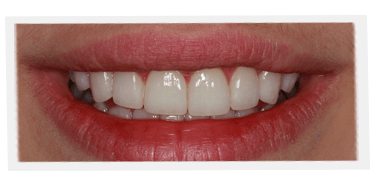
In my book, A Guide to the Perfect Smile, I cover the stages necessary in uncovering when determining the best smile to give patients. This applies whether you’re considering porcelain veneers, crowns, bridges, dental implants, or any other cosmetic dentistry procedure. Enjoy!
The Stages of a Smile
It’s important to realize that a smile moves. It animates. It’s not like a cavity, which is static and does not change before the dentists eye (let’s hope not, anyway). Gum disease stays the same, regardless of whether the person is talking or not talking. A smile is dynamic. You can’t look at patients with their lips closed and predict what they are going to look like when they smile.
So when we’re analyzing smiles, we have to look at four parts of the smile cycle: (I) The look when the patient’s lips are together. (II) The look when their lips are slightly parted – and how much tooth is showing. (III) The look when it’s what we would call a normal smile – the three-quarters smile, the not quite full smile people use when being photographed. (IV) The look when the smile is exaggerated and wide, when someone is laughing wholeheartedly. These four stages are therefore termed:
Stage I lips closed
Stage II resting display
Stage III natural smile (three- quarters)
Stage IV expanded smile (full)
Dentists can use these stages to describe what the smile would look like at various points in the smile cycle. What matters is not just that smile once it has been achieved, but the whole progression of the smile, from the closed, resting stage to the fully expanded stage. I call this animation.
Of course, smiles vary and are unique to each individual. Many smiles do not differ much from a natural smile to an expanded smile. In these cases, treatment can often be restricted to the maxillary or mandibular anterior front six teeth. Other smiles differ greatly between these two stages, in which case the treatment plan to aesthetically improve the smile must be extended to a greater number of teeth.”



